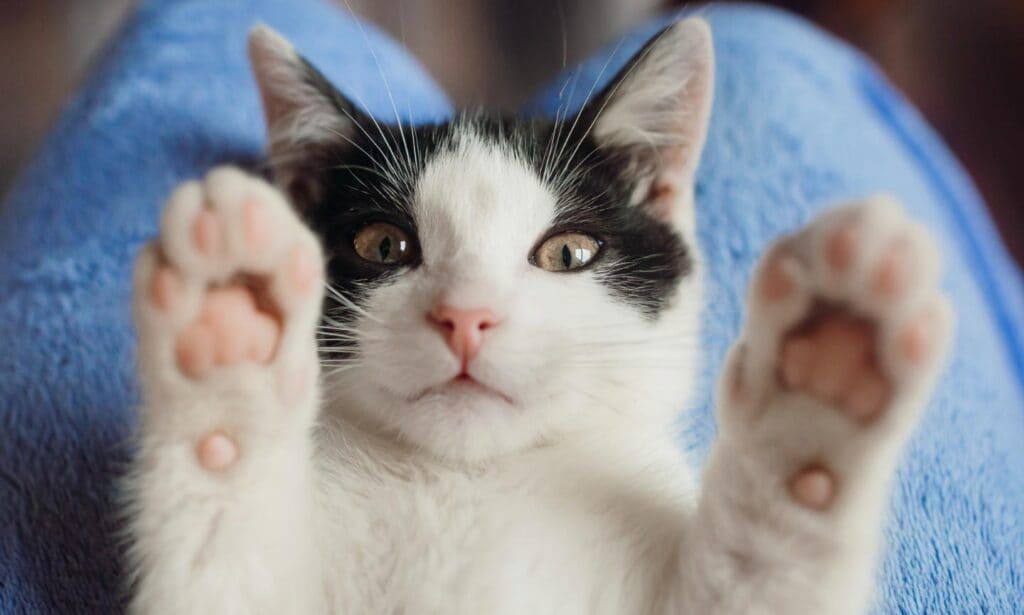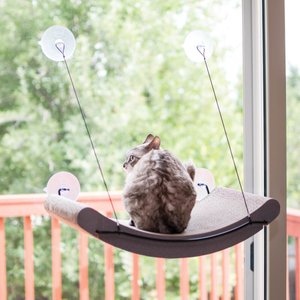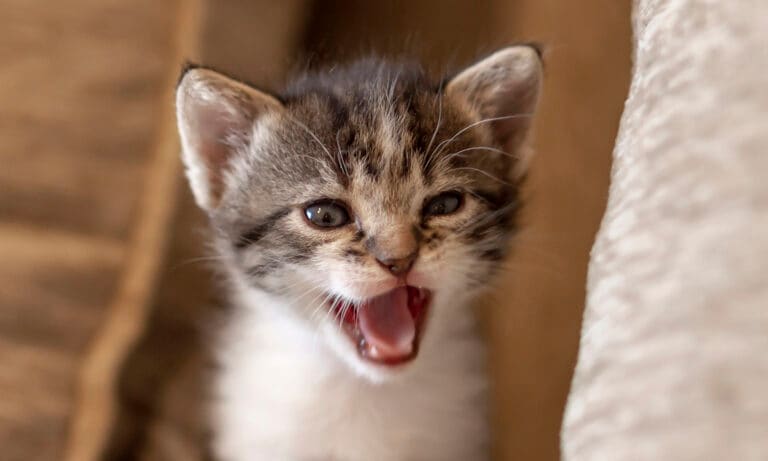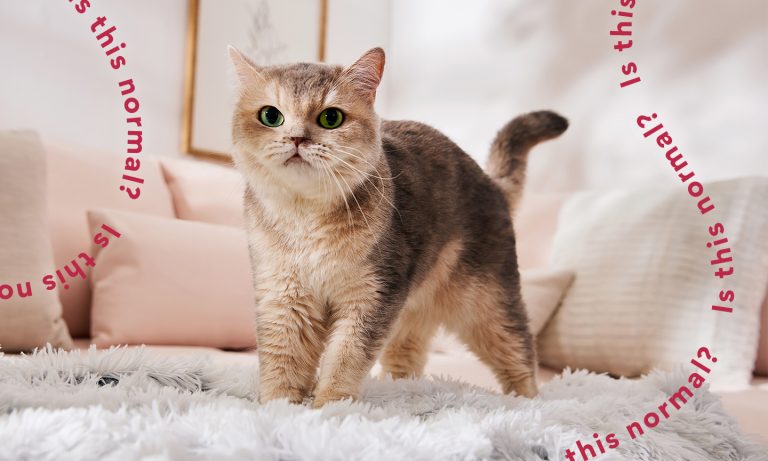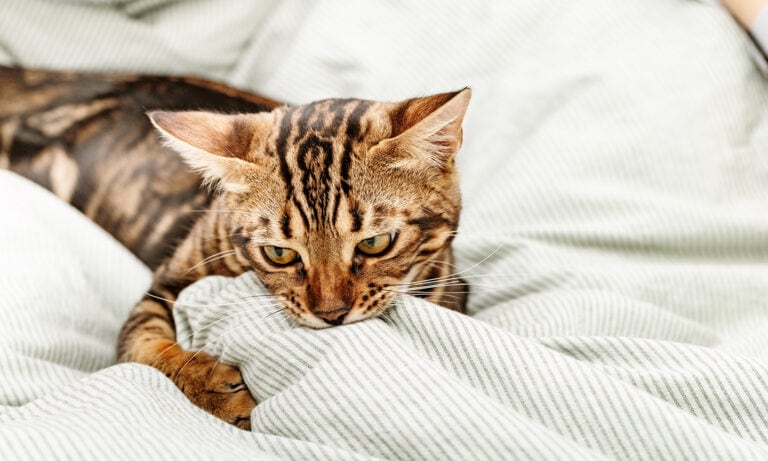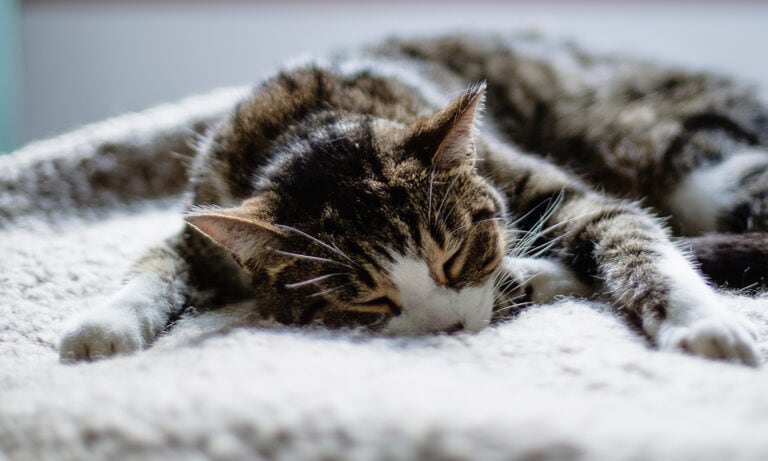As cat parents, we all want our feline friends to be happy, and we go to great lengths to ensure they’re living their best lives. After all, your kitty deserves top-shelf catnip, and you know how they feel about people sitting in “their” chair.
But how do you know your cat is happy? Cats can’t talk or text—or at least, they choose not to—so it’s up to pet parents to understand how cats communicate their feelings and needs.
The more you know about your four-legged friend, the better you can care for them and strengthen your unique bond. Read on for signs that your cat is, indeed, a content kitty.
In This Guide
11 Ways To Tell if Your Cat Is Happy
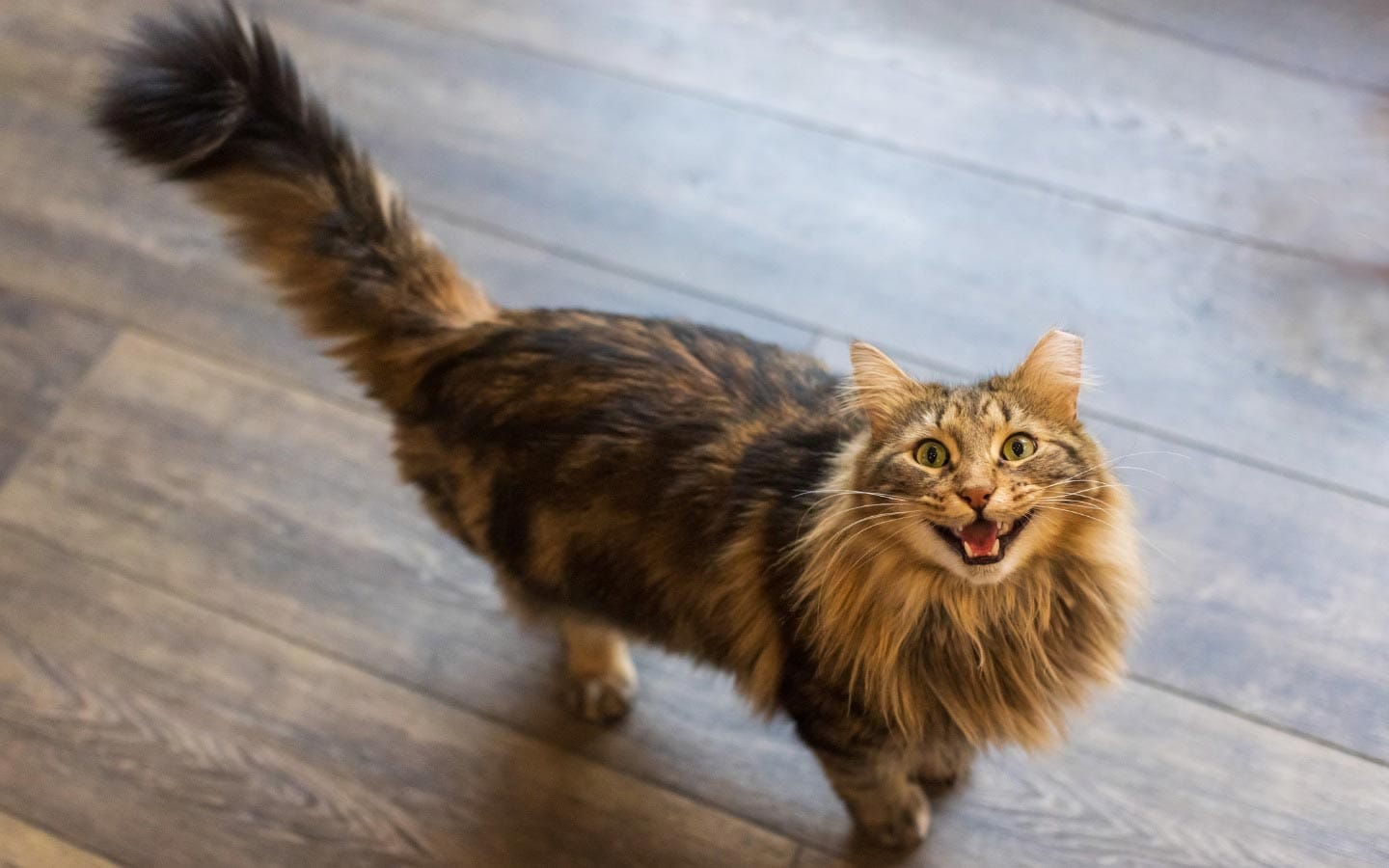
1Raised Tail
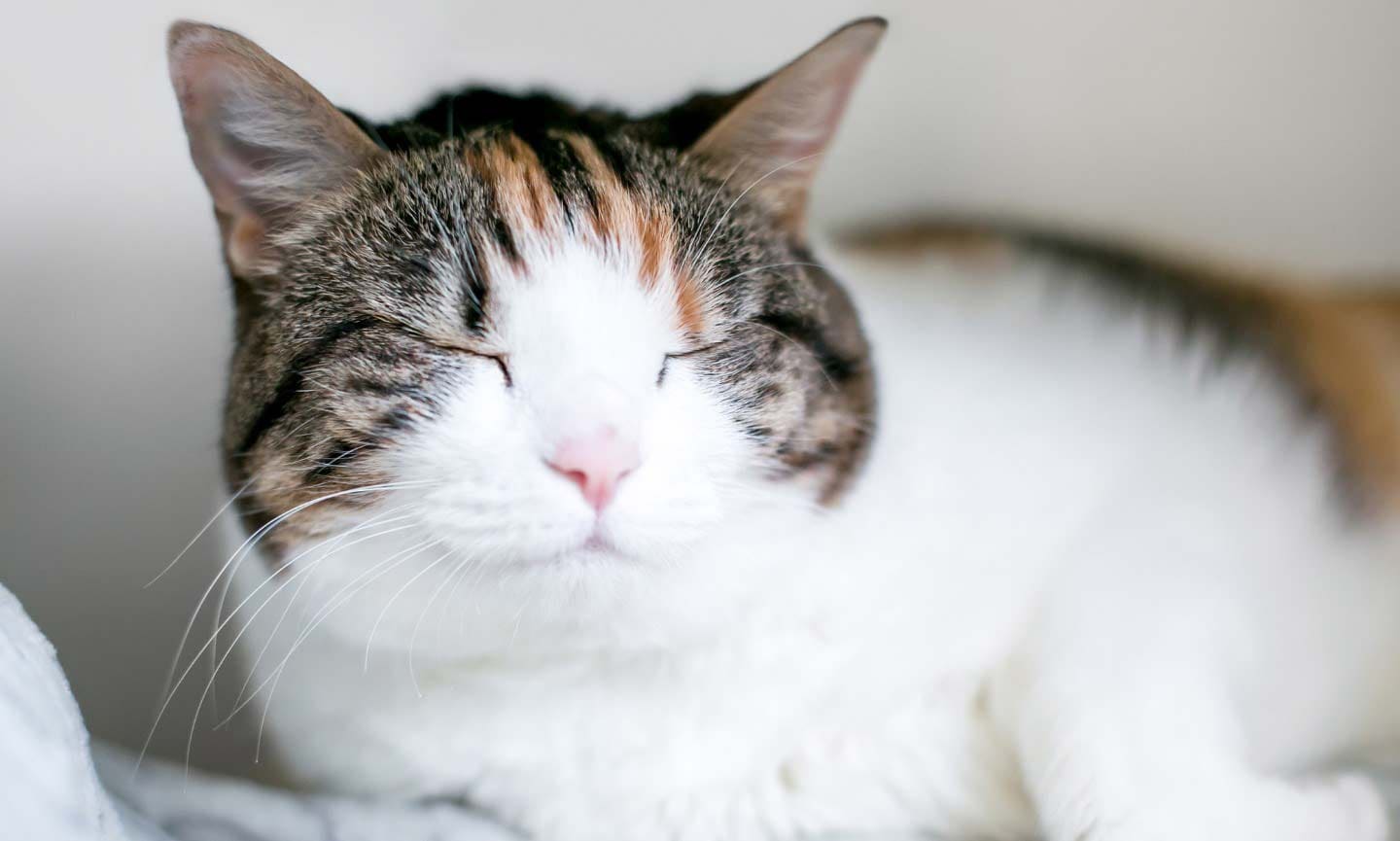
2Slow Blinks
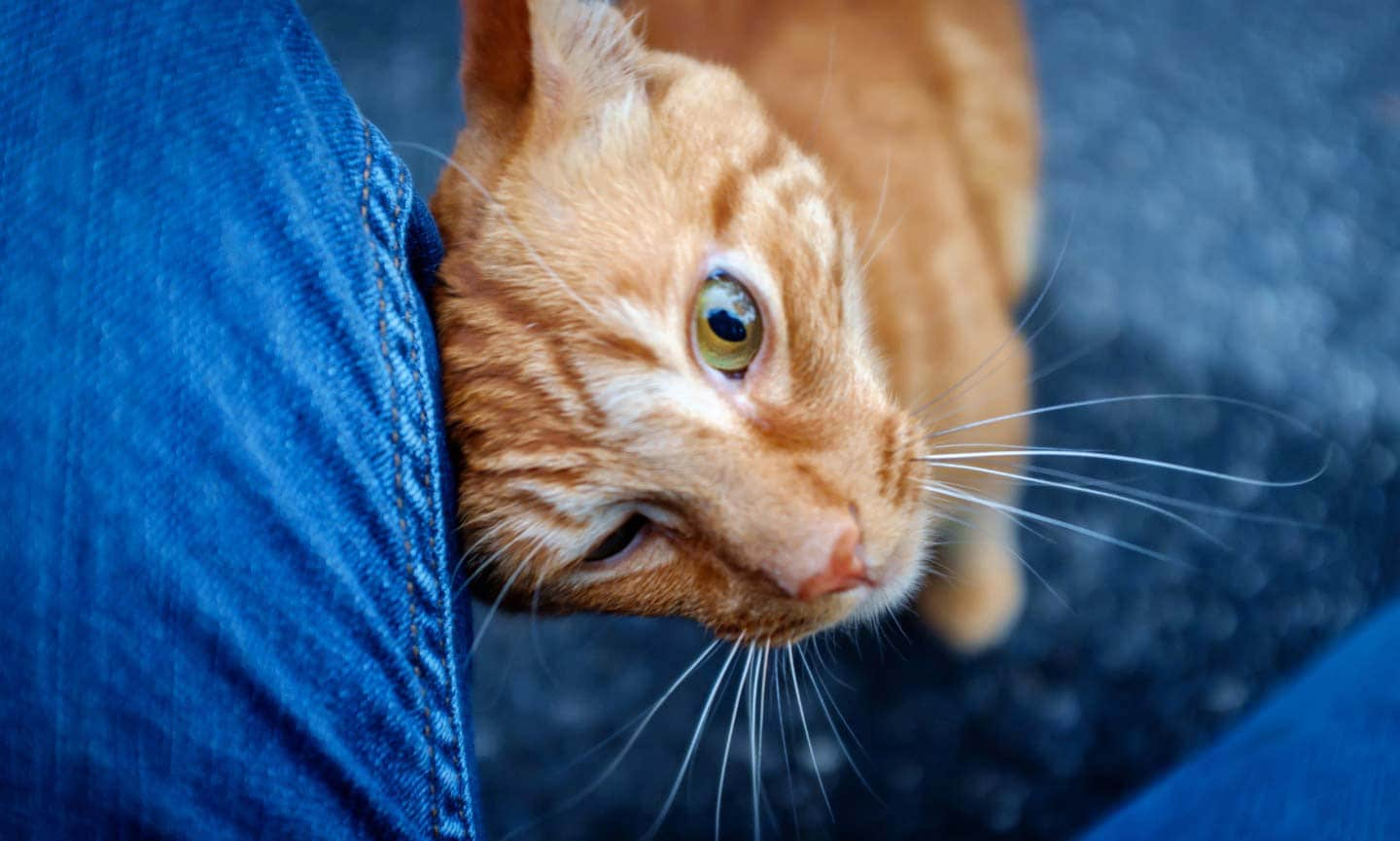
3Headbutting
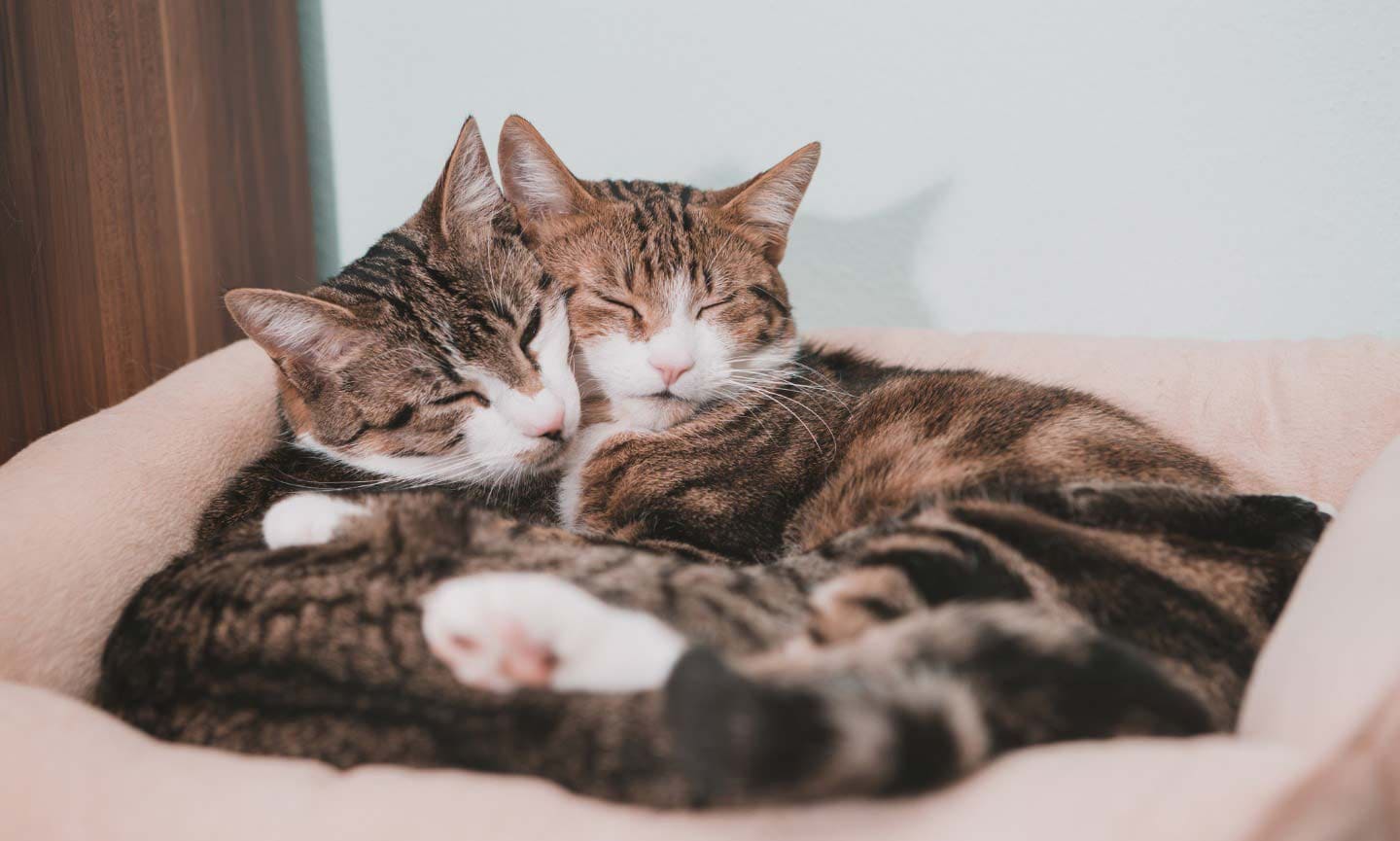
4Relationships With Other Cats
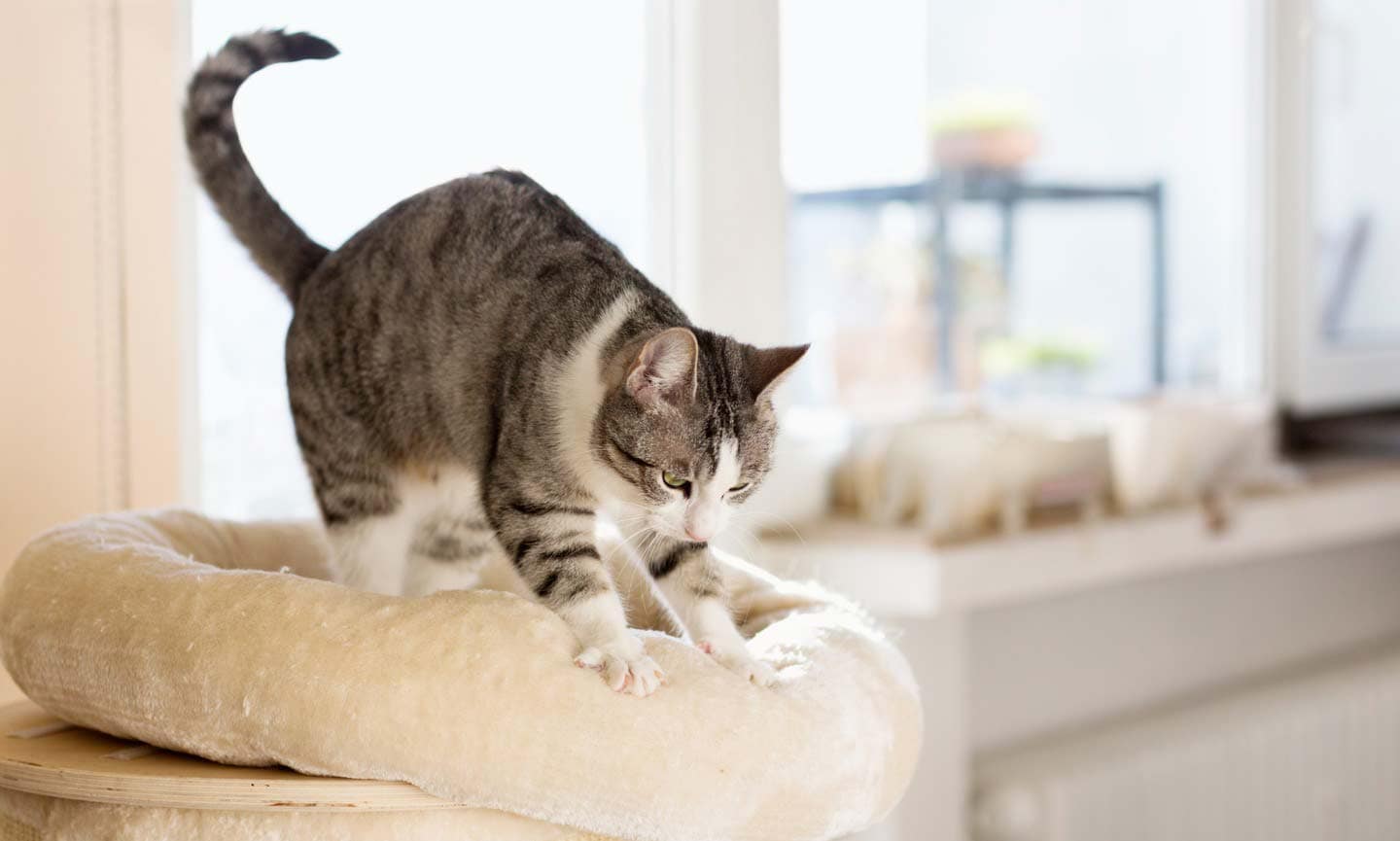
5Making Biscuits
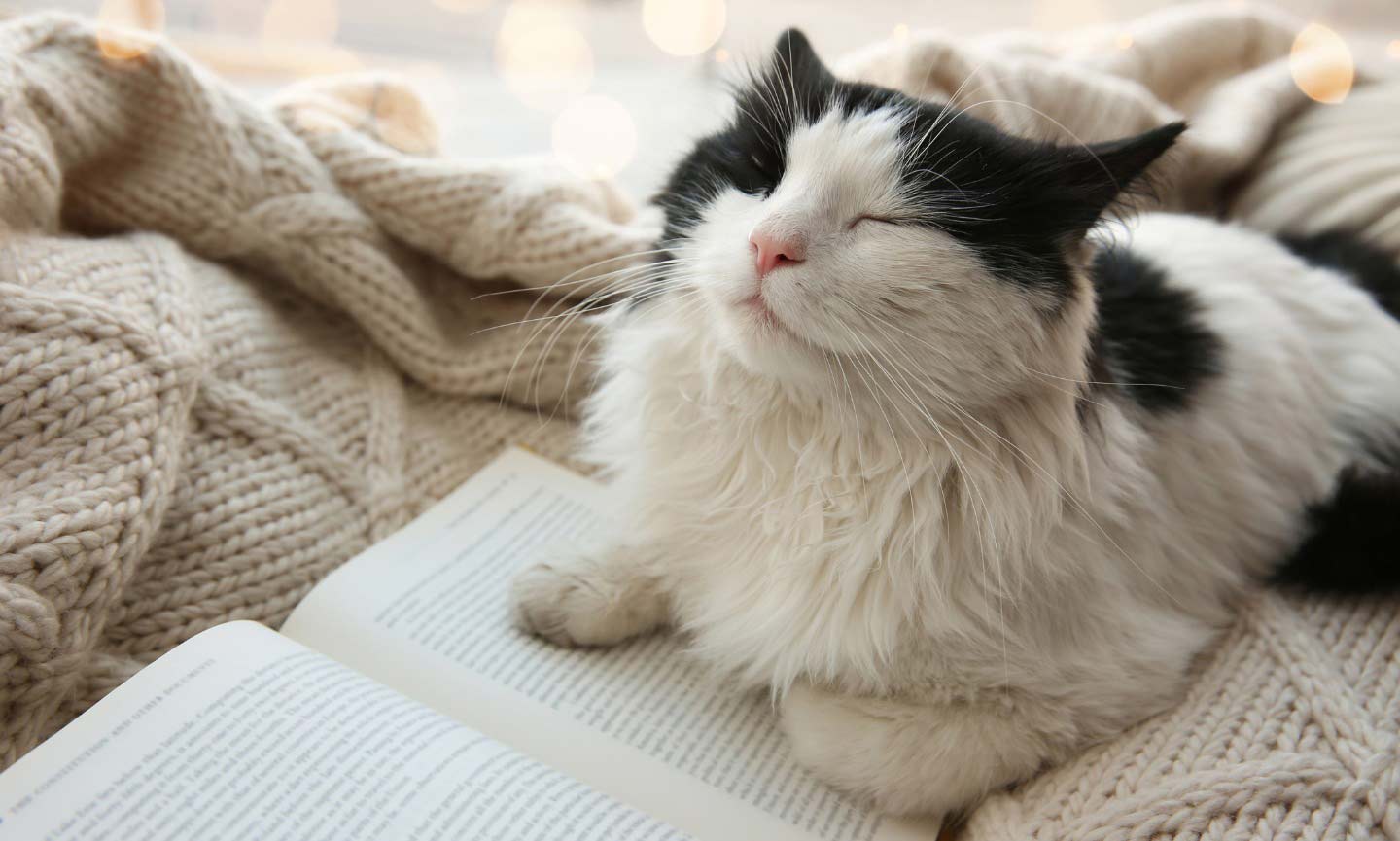
6Purring
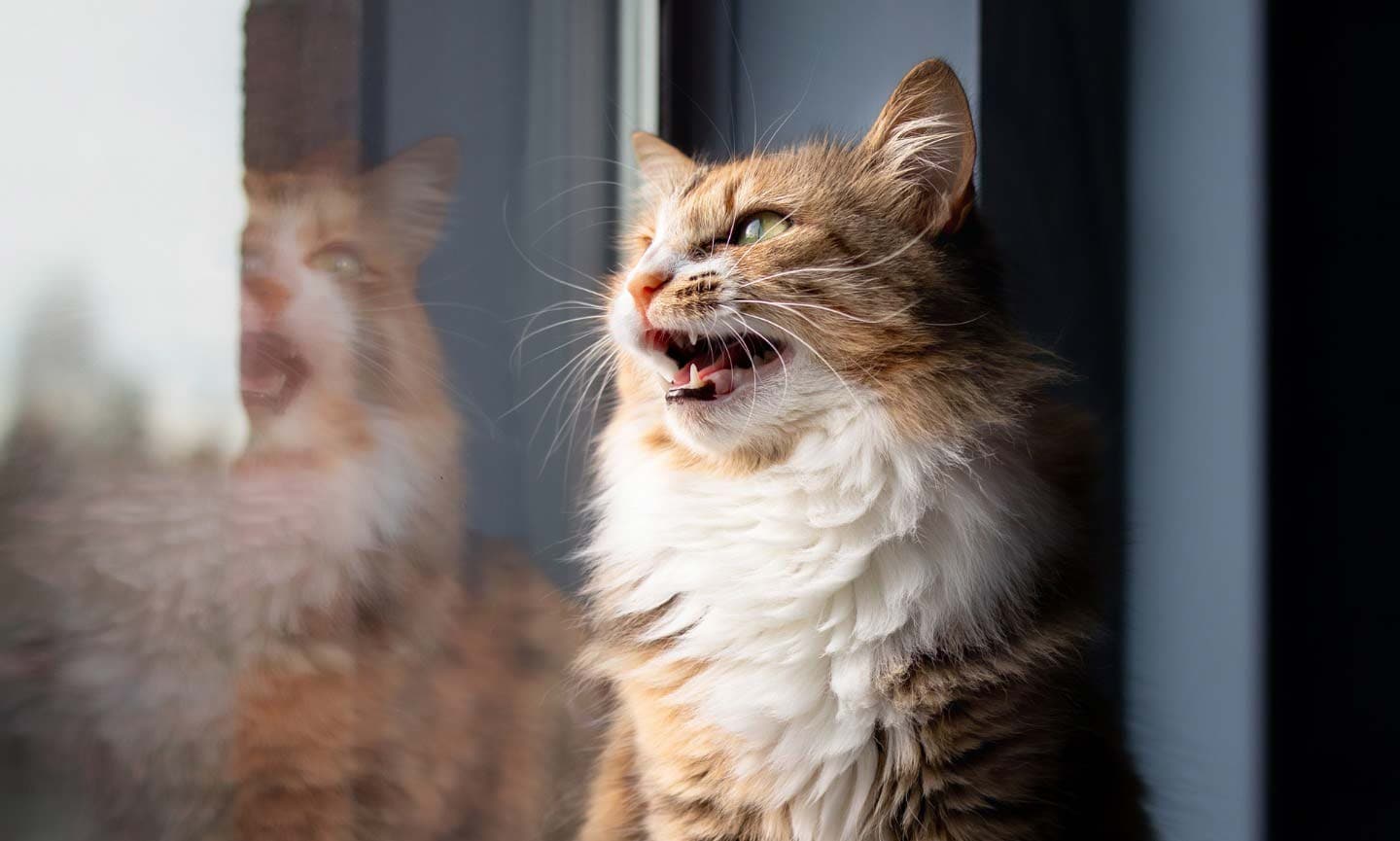
7Trilling and Chirping
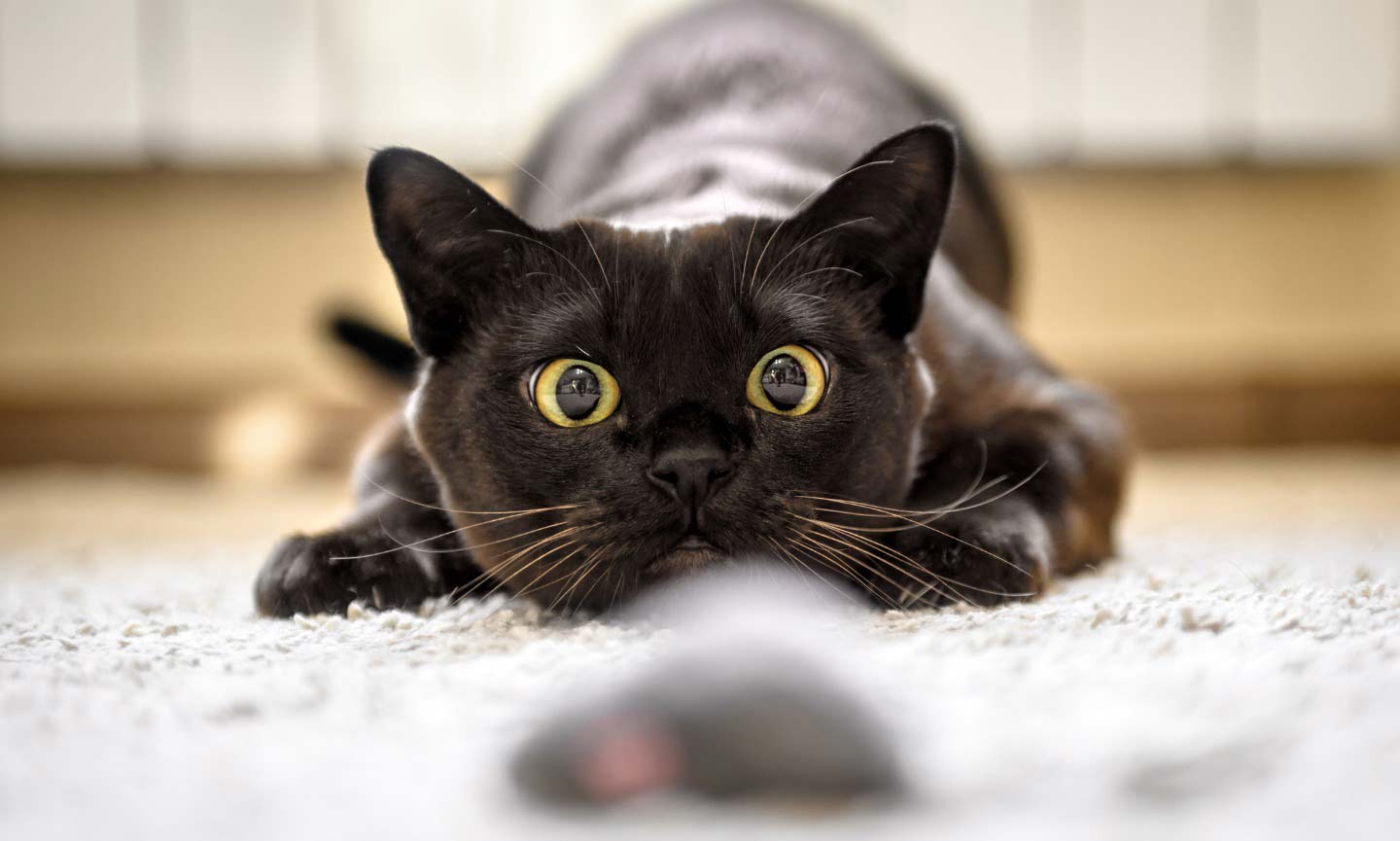
8Playful Behavior
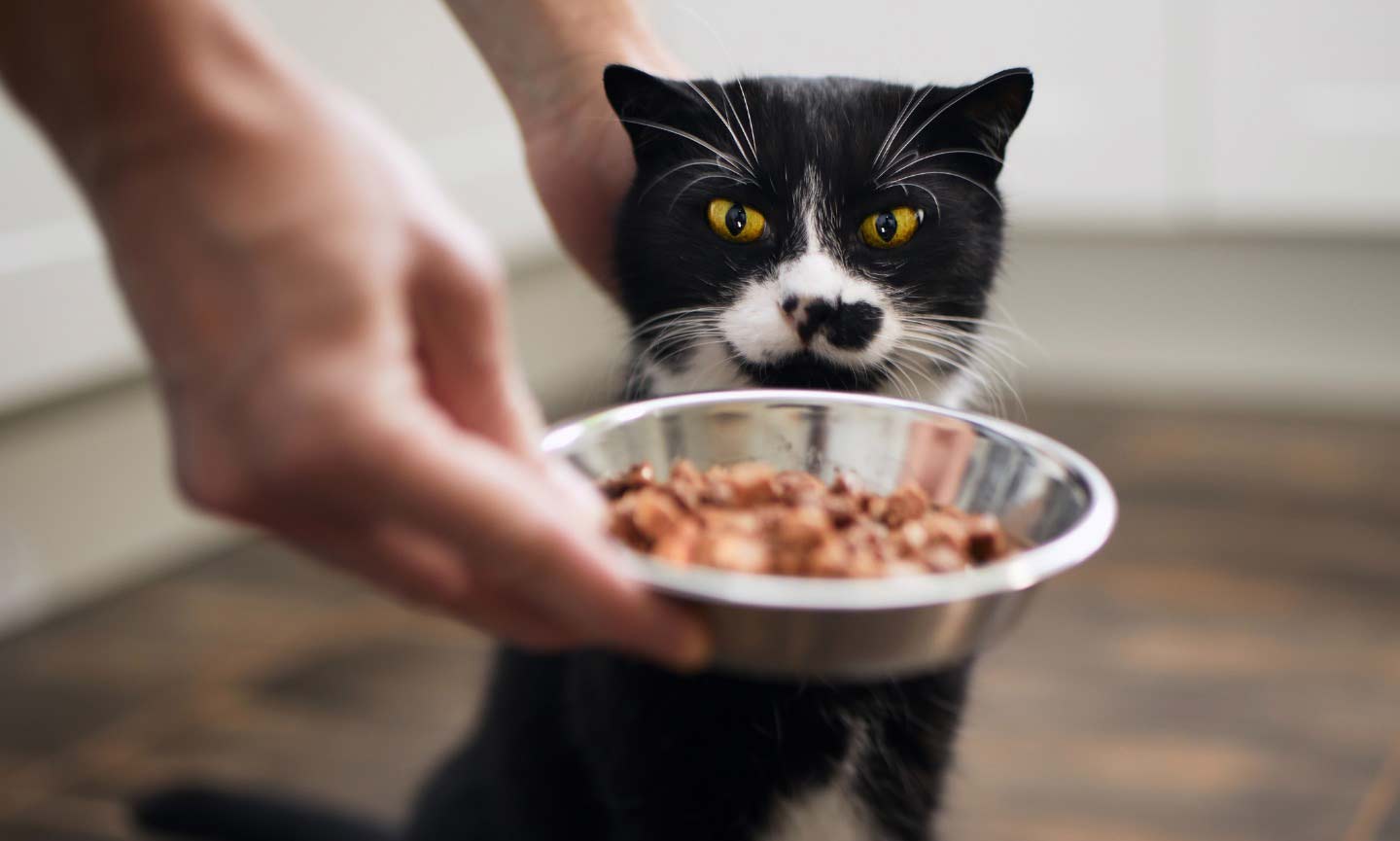
9Healthy Appetite
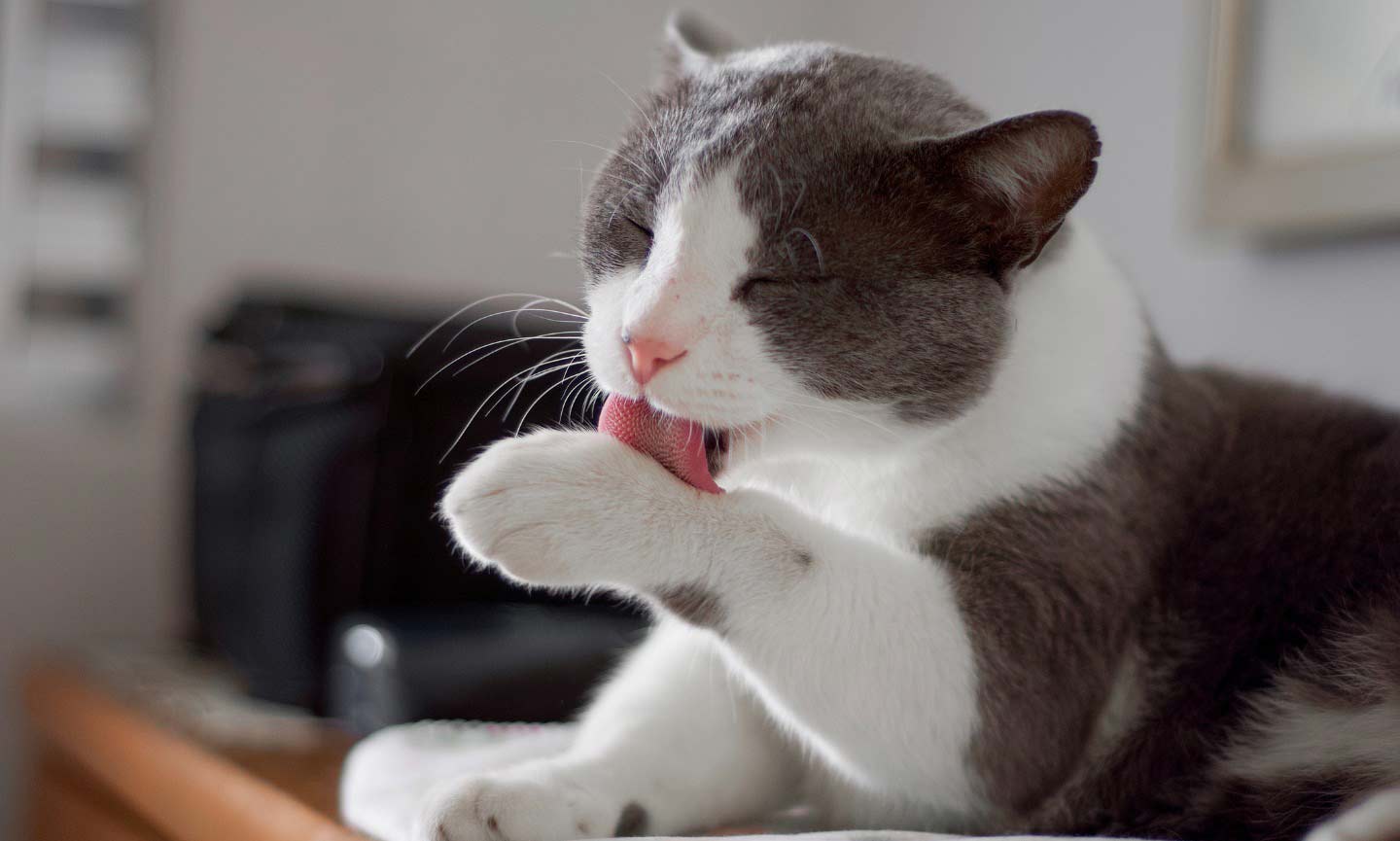
10Good Grooming Habits
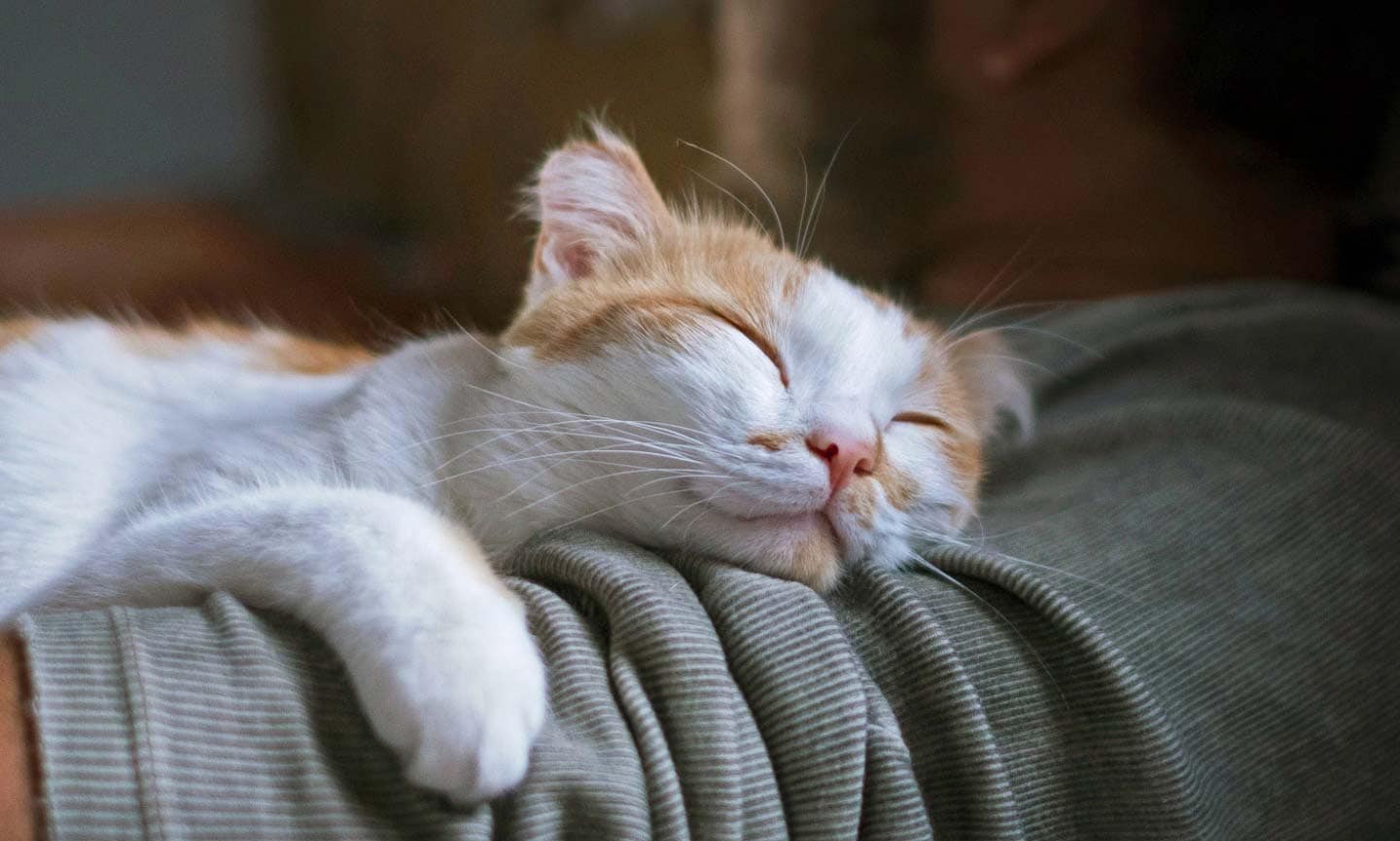
11Social Behavior
Is the Internet-Famous “Happy Cat” Actually Happy?
Everyone loves a cute cat who can’t contain their excitement. Case in point? The famous “happy cat meme,” in which an adorable cat jumps for joy when their humans return home.
“When a cat is overwhelmed with happiness, that energy needs an outlet, and playful pouncing is often it,” says Dr. Honnas of the video. “It’s these candid moments that reinforce the deep emotional bond cats share with their humans.”
However, don’t panic if your cat’s greeting is more subtle than a viral TikTok. While the “happy cat” video is certainly cute, less enthusiastic reactions are just as indicative of happiness. “Some cats might jump or dash around when their favorite human comes home, while others might show their happiness in more subdued ways, like a gentle headbutt or curling up on your lap,” says Dr. Kong.
Similar to humans, some cats are naturally “extra,” while others are more low-key with their emotions. “Each cat is an individual, and their expressions of joy are as unique as they are,” adds Kong.
All About Happy Cat Month
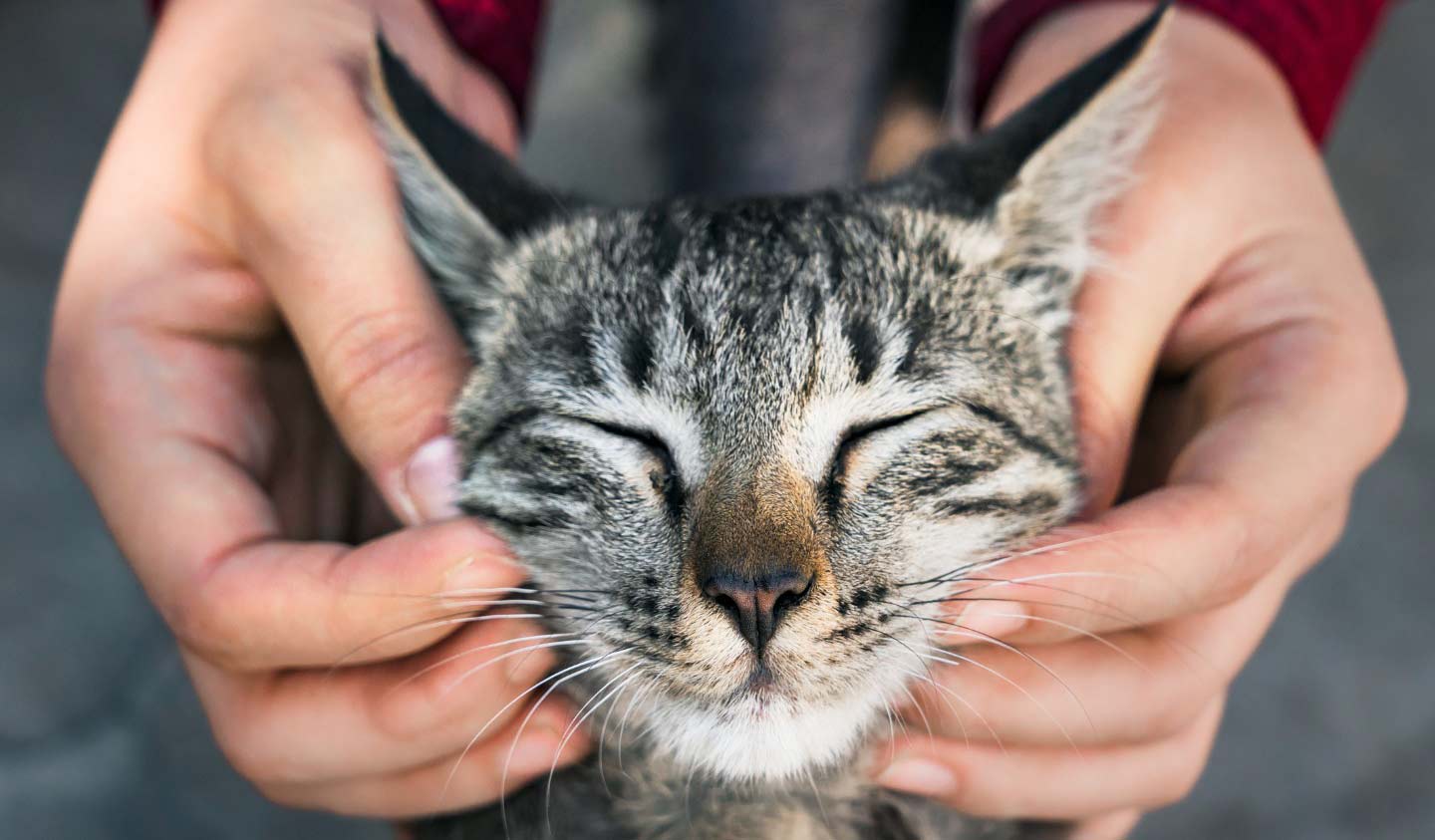
September is Happy Cat Month! An annual observance created by the animal-welfare organization CATalyst Council, the initiative encourages cat parents to learn more about their pets’ unique needs, health and welfare. Here are some ideas for how to celebrate:
- Invest in engaging, interactive toys to stimulate your cat mentally and physically.
- Schedule extra play sessions to strengthen your bond.
- Enrich your cat’s environment with feline-friendly amenities, such as a cat condo, cat tree, a catio, or climbing shelves.
- Work on training! Similar to dogs, training is a great tool to engage your cat’s mind and improve mental health.
- Check in with your veterinarian to ensure your cat is up-to-date with routine healthcare. (A healthy cat is a happy cat!)
- Work with your veterinarian to evaluate your cat’s diet. Are you feeding the appropriate cat food for your cat’s life-stage and health needs?
More About Cats
Share:
